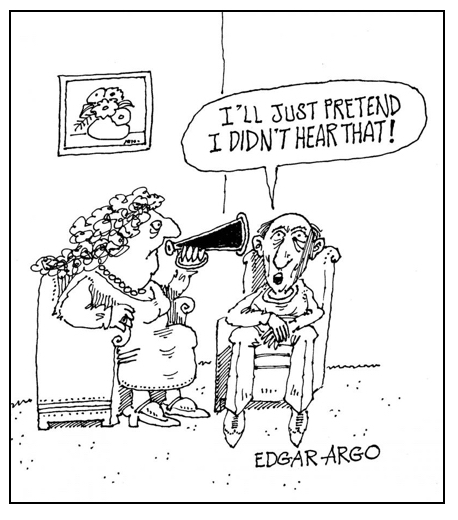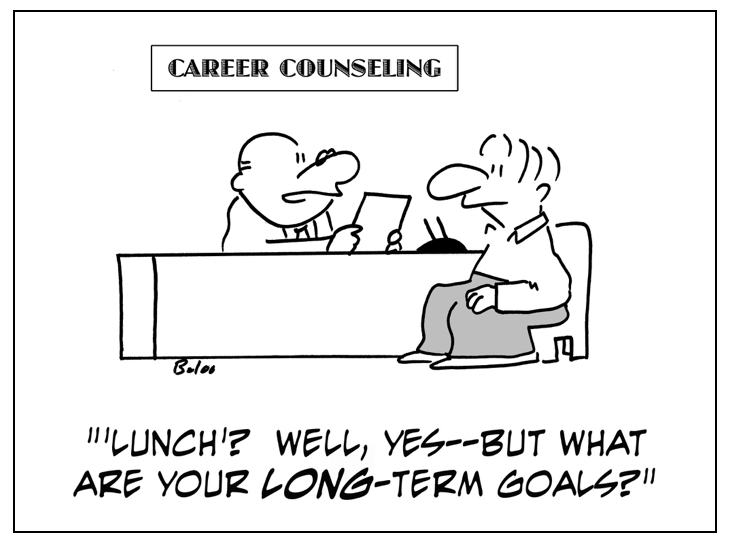 We read for the pleasure and benefit of thinking another person’s thoughts. Sam Harris
We read for the pleasure and benefit of thinking another person’s thoughts. Sam Harris
One of my regrets in life is that for a decade (around age 40-50) I punched pause on my learning and grew intellectually disengaged and stale. During those years I don’t think I read even one book cover-to-cover.
So, I’m making up for lost time. Now, my goal is to read and process one book a week. (Don’t overlook the word process in the previous sentence; it’s the key to learning from reading.) I wrote a post about the benefits of reading along with some suggestions on how to maximize learning from reading – Read.
Here’s a list of the books I read and processed in 2016. At the bottom of this list are my six favorites.
The numbers in brackets represent how I rate each book on a scale from 1 (not good) to 10 (exceptional).
January
1. Focus – Daniel Goleman, 2013, 311 pages, [8] – I like everything Goleman writes.
2. Being Logical – D.Q. McInerny, 2004, 137 pages, [9] – Written for a lay-person to understand; terrific book on the fundamentals of logic.
3. Tripwire – Lee Child, 1999 [6] – Not much to learn from this novel, although I did like this statement, “do it once and do it right.”
4. Code of Conduct – Brad Thor, 2015 [6] – Good escape novel about modern-day espionage.
February
5. True North – Bill George, 2007, 250 pages, [7.5] – Good thoughts on authentic leadership; full of biographical sketches of good leaders.
6. Gratitude – Oliver Sacks, 2015, 45 pages, [5] – I like the life that Oliver Sacks lived and his contribution to society but this book was too simplistic and autobiographical.
7. How to Think Like Leonardo Da Vinci – Michael Gelb, 1998, 322 pages, [6.5] – Develops seven Da Vincian principles such as curiosity, commitment to test knowledge, continued refinement of the senses, etc. He gives practical exercises to develop each principle.
8. The Power of Myth – Joseph Campbell, 293 pages, [7] – This book is a transcript of interviews that Bill Moyers did with Campbell, who was the leading expert on this topic.
9. The Obstacle is the Way: The Timeless Art of Turning Trials Into Triumph – Ryan Holiday, 2014, 200 pages, [6.5] – 32 short chapters on motivational topics; reads like a Tony Robbins event on paper; not many new thoughts but good reminders.
10. Emotional Intelligence: A Practical Guide – David Walton, 2012, 163 pages, [6.5] – More readable than Goleman’s book on the same subject but a bit scattered.
11. The Bible Unearthed – Finkelstein and Silberman, 2002, 385 pages, [6] – These two scholars write a dense and intricate narrative which was difficult for me to follow.
March
12. Blue Ocean Strategy: How to Create Uncontested Market Space and Make the Competition Irrelevant – Kim and Mauborgne, 2005, 238 pages, [7] – Good book for entrepreneurs to read; just the chapter on Build Execution into Strategy is worth the price of the book.
13. Enchiridion – Epictetus, 50 AD, 56 pages, [6] – Wise sayings from the famous Stoic philosopher. Ex. Fortify yourself with contentment, for this is an impregnable fortress.
14. All the Light We Cannot See – Anthony Boerr, 2014, 530 pages, [8.5] – The best novel I’ve read in years. Takes place during WW2.
15. The Art of Possibility – Rosamund and Benjamin Zander, 2000, 208 pages, [6] – Too esoteric for my taste. I gleaned a few good thoughts but not many.
16. Our Man in Damascus: Elie Cohn – Ele Hen-hanan, 140 pages, [5.5] – A non-fiction book about Elie Cohn, one of Israel’s most famous spies.
17. How We Learn: The Surprising Truth About When, Where, and Why It Happens – Benedict Carey, 2014, 244 pages, [8] – Significant thoughts on how to learn based on scientific research. I highly recommend this book.
18. The Target – David Baldacci, 2014, 420 pages [5] – Typical spy-thriller. The only reason I read this book is that I was on a transatlantic flight and it helped pass the time.
April
19. Smarter, Faster, Better: The Secrets of Being Productive in Life and Business – Charles Duhigg, 377 pages, [7] – Fresh thoughts on motivation, teams, focus, goal setting, managing others, decision making, innovation and absorbing data.
20. Everything Counts – Gary Blair, 2010, 265 pages [5] – 52 short chapters on various topics. I don’t understand the premise of the book: if everything counts, nothing is prioritized.
21. How the Mighty Fall: And Why Some Companies Never Give In – Jim Collins, 2009, 210 pages, [8.5] – Collins is a scholar and a wise teacher of business management. The lessons in this book apply to all organizations.
22. The Art of Waking People Up – Cloke and Goldsmith, 300 pages [7] – Good thoughts on coaching, mentoring, feedback, assessment, listening, problem solving confrontation and conflict resolution.
May
23. 13.8: The quest to find the true age of the universe and the theory of everything – John Gribbin, 2016, 241 pages, [8] – A fascinating update on the latest research by cosmologist and astronomers regarding the age of the universe. It’s amazing what these brilliant people know.
24. Reality Therapy: A New Approach to Psychiatry – William Glasser, 1965, 160 pages, [5] – A dated perspective on psychology. I like his emphasis on personal responsibility but other perspective are questionable.
25. A Curious Mind: The Secret to a Bigger Life – Brian Grazer, 2015, 300 pages [7] – Very autobiographical but contains good insights regarding the value of curiosity.
26. Friday On My Mind – Nicci French – 2015 435 pages [5] – I needed an escape novel to read on my return flight from Amsterdam. It was okay but forgettable.
27. Make Me – Lee Childs, 2015, 400 pgs [6] – I usually like Childs’ novels about Jack Reacher but this one was disappointing.
June
28. Talk Like TED – Carmine Gallo – 2014, 278 pages [8] – A must-read book for those who speak and write.
29. Empire of the Summer Moon – S.C. Gwynn, 319 pages, [6] – A well-researched book about the Comanche Indian tribe. More than I wanted to know about this interesting subject.
30. The Shawl – Cynthia Ozick – 1980, 70 pages [4] – This novella won awards, but I didn’t understand 25% of what I read.
31. The Laws of Subtraction: Six Simple Rules for Winning in the Age of Excess Everything – Matthew May – 2014, 214 pages [7] – Good thoughts on how and why less trumps excess.
July
32. The Laws of Simplicity – John Maeda – 2006, 100 pages [3] – A very confusing book. Disjointed, non-linear, rambling. I almost put it in the “books I started but did not finish” category, but it was short enough to skim to the end.
33. Living in More Than One World – Bruce Rosenstein – 2009, 150 pages [7] – Based on the life and teachings of Peter Drucker, particularly his emphasis on lifelong learning and maintaining a diverse personal life.
34. Drucker on Asia – Drucker & Nakauchi – 1997, 192 pages [6] – I am a huge fan of Drucker, but this book focused exclusively on Japan, which I found to be too limiting.
35. Brain Rules – 12 Principles for Surviving and Thriving at Work, Home, and School – John Medina – 2014, 264 pages [8] – Well researched, well written book on findings in neuroscience that impact our daily lives. Insights on: exercise, sleep, stress, memory, vision, etc.
36. Everything I Never Told You – Celeste Ng – 2014, 297 pages [8] – I learned a lot from this novel, about people living false lives due to other people’s expectations.
August
37. Foreign Agent – Brad Thor – 2016, 335 pages [6] – A semi-interesting spy novel.
38. The Invention of Nature – Andrea Wulf – 2015, 341 pages [8] – Alexander von Humboldt was one of the world’s greatest explorers, but few people know his story. This book is a biography of his life and a nice description of life in the 1800’s.
39. The Nightingale – Kristin Hannah – 2015, 438 pages [8] – This novel take place during WW2 and follows the lives of a French family. A terrific book.
40. Think Like a Freak – Levitt and Dubner – 2014, 210 pages [7] – The third book in this series. Always interesting information about why and how some things happen.
41. Greatest Salesman in the World – Og Mandino – 1968, 103 pages [3] – A trite book; I can’t believe it sold so many copies.
September
42. Fascinate – Sally Hogshead – 2010, 250 pages [7] – elaborates on seven fascination triggers: lust, mystique, alarm, prestige, power, vice, and trust.
43. Living the Secular Life – Phil Zuckerman – 2014, 260 pages [7] – gives a balanced and accurate portrayal of the secular mind and ideology.
44. State of Wonder – Ann Patchett – 2011, 353 pages [9] – Everything a novel should be: pure pleasure and hard to put down. Her description of fighting an 18-ft Anaconda in a small boat and a C-section performed in the jungle of Brazil is worth the read.
45. Shackleton’s Way – Leadership Lessons from the Great Antarctic Explorer – Morrell and Capparell – 2001, 215 pages [7] – Presents a good overview of the expedition and highlights key leadership lessons.
October
46. Becoming A Learner: Realizing the Opportunity of Education – Sanders – 2012, 52 pages [7] – A must-read for every student entering college – the purpose of college is to become a learner.
47. The Gardner and the Carpenter – Allison Gopnik – 2016, 254 pages [8] – A synopsis on current research regarding raising children. A must-read for parents and grandparents.
48. What Intelligence Tests Miss – the psychology of rational thought – Keith Stanovich – 2009 – 212 pages [9] – This book has opened up a new space in my mind – intelligence and rationality are not the same; a person can be both very intelligent and irrational.
49. Chasing Venus – Andrea Wulf – 2012, 299 pages [8] – History of the transit of Venus over the sun in 1761 and 1769; these scientists did amazing things.
November
50. Employee Engagement – Kevin Kruse – 2012, 81 pages [5] – Self-published book in 14 pt. font and double-spaced. Why do people do this? His thoughts are decent but it’s a simple book.
51. On Managing Yourself – Harvard Business Review – 2010, 188 pages [8] – Eleven select articles taken from HBR. A very beneficial read for leaders.
52. Predictably Irrational – The Hidden Forces That Shape Our Decisions – Dan Ariely – 2008, 325 pages [8] – A very engaging and accessible book on why we often behave irrationally.
53. The End of Faith – Sam Harris – 2004, 301 pages [7] – Chapter 4 – The Problem with Islam – is a good summary of the challenges that Islam produces.
Books I started but did not finish
Love Does – Bob Goff – A simple, autobiographical book. I’m not that interested in the musings of an average person.
Think and Growth Rich – Napoleon Hill – Very outdated and tedious to read.
The Nature of Rationality – Robert Nozick. I don’t have the intellectual hard-drive to process this book. I wish I did. Nozick is a brilliant professor.
Small Is Beautiful – Economics as if People Mattered – E.F. Schumacher – Not a very engaging book. I was also struck by how outdated a book can become in 46 years.
6 best books I read in 2016
These books are not listed in order of preference. I chose one book from six different categories so you, the reader, might benefit from choosing a category that you like.
Fiction – The Nightingale – Kristin Hannah – This novel take place during WW2 and follows the lives of a French family.
History – Chasing Venus – Andrea Wulf – History of the transit of Venus in front of the sun in 1761 and 1769; these scientists did amazing things.
General interest – How We Learn: The Surprising Truth About When, Where, and Why It Happens – Benedict Carey – Significant thoughts on how to learn based on scientific research.
Self-improvement –Talk Like TED – Carmine Gallo – A must-read book for those who speak and write.
Leadership –On Managing Yourself – Harvard Business Review – Eleven select articles taken from HBR. A very beneficial read for leaders.
Science – What Intelligence Tests Miss – the psychology of rational thought – Keith Stanovich – This book has opened up a new space in my mind – intelligence and rationality are not the same; a person can be very intelligent and irrational.
Do you need more evidence that reading will enhance your life?
Want to live longer? Read a book. That’s the contention of Yale University researchers in a study of 3,635 people published in the September 2016 issue of Social Science & Medicine. They concluded that as little as 30 minutes of book reading a day will extend your life, and that, on average, book readers were found to live more than two years longer than non-readers.
[reminder]What are your thoughts about this essay?[/reminder]
 In every good marriage, it helps sometimes to be a little deaf. I have followed that advice assiduously, and not only at home through 56 years of a marital partnership nonpareil. I have employed it as well in every workplace, including the Supreme Court. When a thoughtless or unkind word is spoken, best tune out. Reacting in anger or annoyance will not advance one’s ability to persuade. Supreme Court Justice Ruth Bader Ginsburg [This excerpt from Ginsburg’s new book My Own Words appeared in a New York Times article.]
In every good marriage, it helps sometimes to be a little deaf. I have followed that advice assiduously, and not only at home through 56 years of a marital partnership nonpareil. I have employed it as well in every workplace, including the Supreme Court. When a thoughtless or unkind word is spoken, best tune out. Reacting in anger or annoyance will not advance one’s ability to persuade. Supreme Court Justice Ruth Bader Ginsburg [This excerpt from Ginsburg’s new book My Own Words appeared in a New York Times article.]
 An article in the March 24, 1972 issue of Life magazine featured John Goddard who, at age 15, wrote down 127 goals which he wanted to accomplish in his lifetime.
An article in the March 24, 1972 issue of Life magazine featured John Goddard who, at age 15, wrote down 127 goals which he wanted to accomplish in his lifetime. There’s a lot of good, free information on the World Wide Web. Here are six of my favorite sites that will send you a daily email with pertinent information.
There’s a lot of good, free information on the World Wide Web. Here are six of my favorite sites that will send you a daily email with pertinent information. We read for the pleasure and benefit of thinking another person’s thoughts. Sam Harris
We read for the pleasure and benefit of thinking another person’s thoughts. Sam Harris